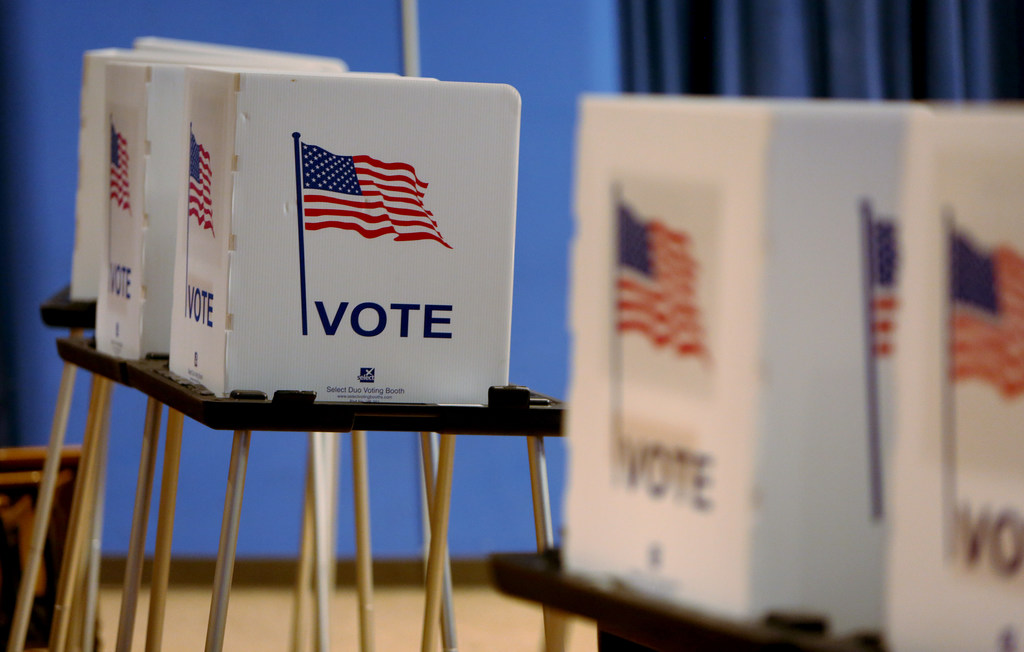GOP lawmakers slammed Gov. Tony Evers for vetoing six GOP bills seeking to overhaul Wisconsin election laws.
One of those sought to ban local clerks from filling in missing information on absentee ballot envelopes.
Legislative leaders were mum on whether they would try to override the vetoes.
Senate Majority Leader Devin LeMahieu, R-Oostburg, on Tuesday accused the guv of “standing in the way of restoring the trust in our process that has been lost.” Meanwhile, Sen. Duey Stroebel, R-Saukville and co-author of several bills Evers vetoed, would support an override attempt and planned to discuss with his colleagues if there was an appetite for such an effort, his office said.
“The refusal of Governor Evers, and all Democrats, to consider any improvement on the mistakes, shortcomings and abuses exposed last November has further divided our State and fueled a lack of confidence in our electoral system,” Stroebel said.
But Evers accused Republicans of political sour grapes in drafting a slew of bills seeking to revamp the state’s election laws in the wake of former President Trump’s loss to Joe Biden by less than 21,000 votes.
Trump and his backers unsuccessfully challenged the election results in court, where judges have knocked down various claims of improprieties.
Evers said the 2020 election was clean and fair. Like in other years, one side won and one lost, but “the only thing different this time is not everyone has been gracious in their defeat.”
“Wisconsin has long been a laboratory of democracy,” Evers said. “But in recent years, we are used as a petri dish for Republican plans to undermine that democracy. Not anymore, not today, not as long as I’m governor of the great state of Wisconsin.”
Many of the bills sought to address issues that Trump raised during his unsuccessful suits.
Included are complaints that local clerks filled in missing information on absentee ballot envelopes. SB 212 sought to explicitly ban clerks from doing that, instead requiring them to return ballots with missing information to voters to fix themselves. The bill also sought to create new felony charges for election officials.
In addition to SB 212, Evers vetoed:
*SB 210, which sought to allow election observers to be no more than 3 feet from tables at which voting activities are occurring. Current law says observers must be between 3 feet and 8 feet away.
*SB 205, which sought to overhaul policies for special voting deputies that assist voting in assisted care facilities. That included proposals to require election administrators to provide notice of the dates and times when special voting deputies would visit the home or facility. They would also have to provide notices to residents’ relatives upon request, and the bill sought to make it a Class I felony for an employee of an assisted care facility to influence a resident’s vote choices or intention to apply for an absentee ballot or cast a ballot.
*SB 204, which would have revamped procedures for those who claim indefinitely confined status due to age, infirmary or illness. It sought to require those who claimed the indefinitely confined status between March 2020 and November 2020 to reapply for the status, end a decade-long exemption of those voters providing proof of voter ID and require all absentee voters to include a copy of their ID each time they apply for a ballot. Currently, voters are only required to provide ID verification the first time they vote absentee.
*SB 203, which sought to ban events such as Madison’s “Democracy in the Park” during which the city clerk put paid poll workers in city parks to collect absentee ballots more than a month out from the election. The bill sought to only allow voters to return absentee ballots to a collection site designed by a municipality that is as near as practicable to the clerk’s office with other restrictions as well such as limiting such events to the same two-week window before an election as when early voting is allowed. It also sought to explicitly ban ballot harvesting.
*SB 292, which sought to require municipalities that broadcast canvassing proceedings live to record it and retain the recording for 22 months.
See Evers’ release with links to his veto messages here.



